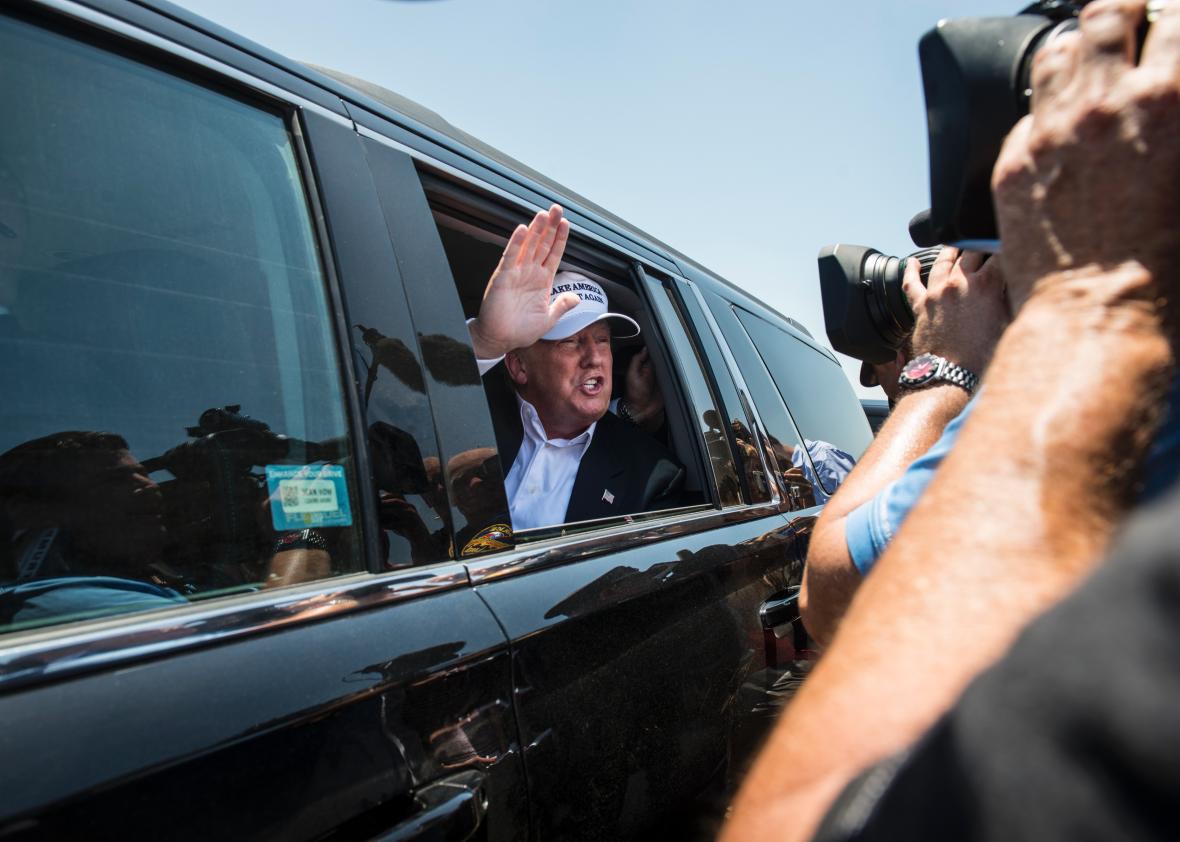Donald Trump may seem invincible right now, but his current run can’t last. Even if the belligerent billionaire and current GOP front-runner doesn’t implode on the debate stage next week or on the campaign trail next month, the fundamentals of American politics will still catch up to him: At some point the GOP field will narrow and an establishment favorite will consolidate enough support to knock Trump from his perch. Eventually, that means he will exit a nominating battle he cannot win.
It’s no surprise, then, that the Washington parlor game of predicting how Trump’s campaign will end is now turning into one about what will happen with his supporters when it does.
There is no shortage of possibilities. Writing in the National Journal on Friday, for example, political analyst Charlie Cook pegs Chris Christie and Ted Cruz’s camps as likely homes for Trump’s backers once their first choice is out of the race. In the Washington Post, meanwhile, James Holmann calls it a “jump ball” before ultimately suggesting Trump’s loss could be Mike Huckabee’s gain. While the predictions vary, the rationale behind them is usually the same: Whoever wins the Trump sweepstakes will be someone who shares his anti-establishment anger.
But while Trump’s outsider appeal is undeniable, a closer look at the polls suggests it may also be overblown. In the last national survey conducted by Fox News, for instance, pollsters reassigned Trump supporters based on their declared second choice. The biggest winner? None other than establishment poster boy Jeb Bush, who saw his support climb by more than a third to 19 percent. (The bizarre Bush-Trump overlap can also be seen in reverse: With Jeb out, Trump’s support climbs by 3 points, the biggest jump of any member of the field.) It’s only one poll, of course, but we’ve seen similar trends in others.
That suggests that for all the talk of Trump’s anti-establishment street cred, it can only partly explain his current surge. The other part is even more difficult to pin down with any accuracy: Many of his supporters seem to be attracted to Trump the man as much as they are to his message. As one member of a Bloomberg focus group recently put it: “He’s just tough, we need someone tough.” Said another: “He says it like it is.” Plenty of candidates are offering something similar—Cruz shares his hard line on immigration; Christie offers his own type of decorum-free bluster—but it’s also clear that none of them is offering the literally one-of-a-kind Trump experience.
I saw this firsthand earlier this month at a summit of born-again evangelicals in Ames, Iowa, where Trump repeatedly drew cheers from the crowd despite bumbling through a series of questions about his faith. “When we go in church and I drink the little wine … and I eat the little cracker—I guess that’s a form of asking forgiveness,” Trump said at one point. A candidate not named Donald would have been unlikely to get away with that same answer.
The only common denominator among Trump, Bush, and the half-dozen or more alternatives Trump’s backers list as their second choice in national surveys is that they are all running for the GOP nomination. (Even Rick Perry, Scott Walker, and Lindsey Graham—whom have all taken their fair share of shots from Trump—see their numbers inch up without him around.) The truth is, Trump’s support remains something of a mystery. And if we don’t understand his coalition in the present, it’s unlikely we’ll be able to predict how it will act in the future.
Elsewhere in Slate: The Case for Covering Trump: Why the media shouldn’t ignore his doomed campaign.
